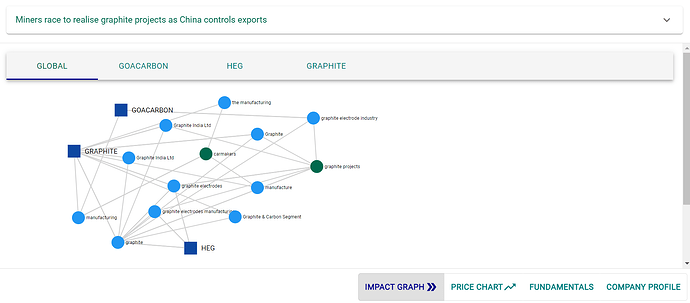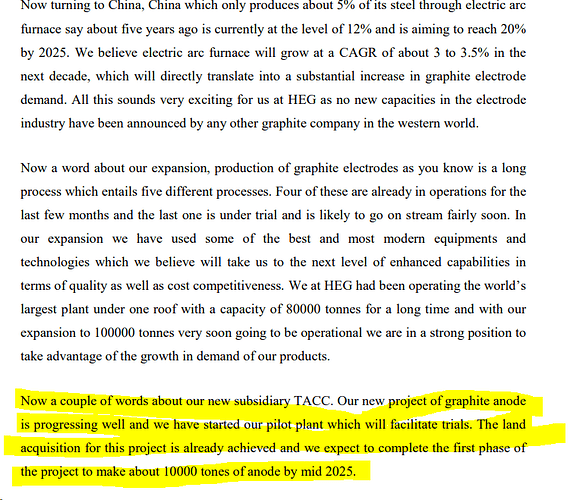Recent developments in China’s export restrictions on key components for electric vehicle (EV) batteries have raised concerns in the global automotive industry. However, these changes can bring forth opportunities for certain Indian graphite companies.
Specifically, 3 Indian companies – Goa Carbon, HEG Limited, and Graphite India Limited are likely to be impacted as shown above. We will explore how these new export curbs can positively impact the business and stock prices of these companies.
Investment in Mining Projects: To ensure a stable supply of battery inputs, carmakers have been increasingly investing directly in mining projects. This trend benefits Indian graphite companies by offering potential partnerships and collaboration opportunities with these global automotive giants. Such partnerships can lead to substantial revenue and profit growth for these Indian companies, which would, in turn, drive their stock prices higher.
Reduced Competition and Increased Demand: As China tightens export controls on natural graphite products used in EV battery manufacturing, the primary source and producer of these components, the global supply chain may experience disruptions. This situation creates an excellent opportunity for Indian graphite companies to step in and meet the rising demand. Companies like Goa Carbon, HEG Limited, and Graphite India Limited, which are already established players in the graphite industry, can benefit from reduced competition in the global market.
Enhanced Relevance in the EV Ecosystem: With China’s export restrictions potentially affecting EV manufacturers worldwide, the need for a diversified supply chain becomes crucial. Indian graphite companies can position themselves as reliable alternatives for global EV battery manufacturers. As a result, these Indian companies can gain greater relevance in the EV ecosystem, leading to increased business opportunities and partnerships.
Strengthening of Domestic and International Presence: The increased demand for graphite components, including electrodes and carbon products, provides a chance for these Indian companies to strengthen their domestic and international presence. By expanding their production capabilities and focusing on quality and innovation, they can attract both domestic and international clients, further boosting their business prospects.
Conclusions:
While China’s export restrictions on key EV battery components may present challenges to the global automotive industry, they also open doors of opportunity for Indian graphite companies. Goa Carbon, HEG Limited, and Graphite India Limited stand to benefit from reduced competition, increased demand, and potential collaborations with international car manufacturers. These developments are likely to have a positive impact on the businesses and stock prices of these Indian companies, making them attractive options for investors looking to capitalize on the evolving dynamics of the EV battery industry.
References:
China imposes fresh export curbs on key EV battery component
Miners race to realise graphite projects as China controls exports
Disclaimer: The article is not a recommendation or advice as to whether any investment is suitable for a particular investor.


